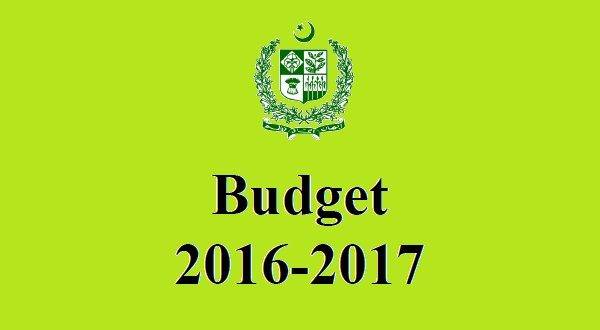Pakistan Budget 2016-2017: Facts and Figures
Shares

ISLAMABAD, (APP): Pakistan Budget 2016-2017: Facts and Figures
Finance Minister, Senator Muhammad Ishaq Dar Friday informed the National Assembly that the government had approved as many as 86 recommendations forwarded by the Senate for incorporation in the Finance Bill 2016-17.
The Senate submitted 139 recommendations to be incorporated in the budget document, out of which 86 have been approved by the government, which is 62 per cent of the total recommendations and a record in the parliamentary history of the country, Finance Minister said while concluding the debate on budget 2016-17 in the National Assembly.
Giving detailed break up, the Finance Minister said that out of the 86 proposals, 34 were accepted in totality while 30 were approved in principle with remaining 22 approved partially, he said
The Finance Minister thanked the Leader of the Opposition for his positive response on the idea of formulating Economic Charter.
The government has already provided three year (2016-19) Medium Term Macro Economic Frame Work with the budget document, he said.
He also asked the opposition to give its recommendations so that economic roadmaps for seven years, ten years and fifteen years could be formulated to lead the country towards sustainable development.
The Minister lamented that undue criticism was made against inflation which was against the reality as the inflation was basically reduced from 12 per cent (2008-2013) to less than 3 per cent.
He said that the Fiscal Deficit was also reduced form 8.4 per cent to 4.3 percent during the past three years and the government targets to bring it more down to 3.8 percent during the current fiscal year.
He said that the government has reduced cost of fertilizers, tax and tariff on tube wells' electricity besides providing credit facilities to farmers to enhance agri production.
He said that it has become fashion among some circles now to suspect the statistical figures, which he said was not a good act.
Pakistan Bureau of Statistics (PBS) was made through an Act of the parliament and the Chief Statistician takes oath from the President, the Minister said.
He said that the PBS is working in accordance with international standards so the suspicions created against it were baseless and meaningless.
He said that rains and pest attack resulted in low agriculture growth, however, he added the services and industrial sector performed well.
He said that there was no discrimination in implementing China Pakistan Economic Corridor (CPEC) projects in the provinces. This project is a game changer and it will be a source of road networks across the country, he added.
Speaking about enhancing tax network in the country, the Minister said, "the portion of Direct Taxes has increased now compared to the past and the SRO exemptions have been eliminated. It will make difficult for non-filers to remain out of the tax net."
The government has tried its level best to give relief on the commodities especially which are in the use of non-affordable consumers through introducing exemption of Indirect Taxes, the Minister informed the House.
Dispelling the impression that taxes on petroleum products have been increased, he read out the figures before the House to show that actually the taxes and petroleum development levy have been reduced during the tenure of the government of Pakistan Muslim League (N).
Giving details of figures quoting petroleum prices in the country, Ishaq Dar said that "Sales Tax on MS petrol has been reduced from Rs 14.70 in March 2013 to Rs 9.36 now. Similarly the tax on Kerosene oil has been reduced from Rs 14.30 to Rs 5.58, High Octane from Rs 19.32 to 10.58 and Light Diesel Oil from 13.55 to 1.86."
However, the tax on High Speed Diesel has been increased from 15.66 to 18.47. But Petroleum Development Levy on petrol has been reduced from Rs 10 to 9.68, on Kerosene from Rs 6 to just 5 paisa, High Octane from Rs 14 to Rs 11.89 and Light Diesel Oil from Rs 3 to just 5 paisa, Ishaq Dar maintained.
